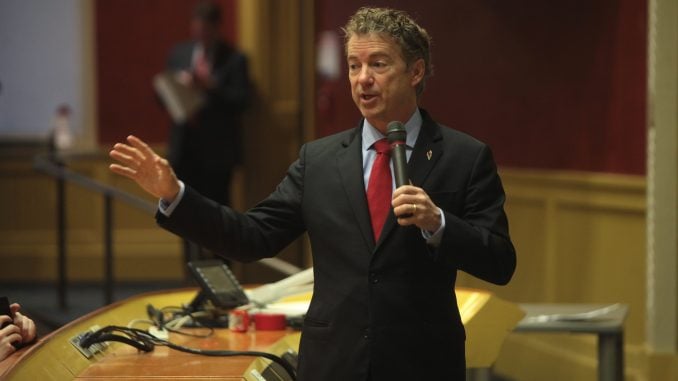
When it comes to politics, deflecting the blame is an oft-used and sometimes profitable strategy. But on healthcare, Republicans played no part in the Obamacare debacle. In fact, the partisan and controversial legislation helped bring the GOP roaring back to power in Congress in the 2010 midterm elections. “Repeal and replace” became the rallying cry for successful campaigns on the right, helping to pad the GOP majority in Congress.Of course, now that some in Washington feel pushback and threats to their power, they may be backing away from full repeal. Still, the House Freedom Caucus is leading the reform effort, orienting the discussion back toward the basic principles of markets and affordability. North Carolina Congressman Mark Meadows, a leader in the Freedom Caucus, is pushing for lawmakers to embrace a plan put forward by physician and Kentucky Sen. Rand Paul. It’s a good start to reform for myriad reasons.Paul’s plan expands on many of the popular proposals put forward by Republicans over several decades. Some of the highlights include nixing the Obamacare mandates, halting runaway costs, enabling tax credits for up to $5,000 for health savings accounts, while dramatically expanding access to purchasing pools.One of the biggest disadvantages to the current system can be the lack of portability of plans, tying some down to a job they no longer want or desire. Individuals and families should be able to purchase insurance as a group through churches or civic associations to expand the risk pool and help to alleviate some of the price barriers because of pre-existing conditions. The proposal also allows consumers to purchase their plans across state lines, thus nullifying costlier regulations prevalent in many states. Full annual premiums can be deducted on federal taxes.In some of the rollout interviews for his proposal, Paul has used North Carolina as an example of Obamacare’s insufficiency and unaffordability. “The main thing to remember about Obamacare is it’s failing because it increased the cost of insurance for young healthy people. They didn’t buy insurance and sicker people did,” declared Paul. “In North Carolina the Blue Cross plan for individuals lost $400 million last year under Obamacare because you can’t have it both ways. You can’t say we want young healthy individuals to buy insurance but then you mandate that the only insurance they buy is very expensive.”Ultimately, Paul’s proposal goes a long way in allowing for families and individuals to control their health care dollars and maximize savings. However, it’s in no way a foolproof solution or a cure-all.Paul’s proposal allows for only a two-year open-enrollment period for patients with pre-existing conditions to sign up for coverage. They are protected only if they carry continuous coverage. It moves away from allowing people to forego coverage and sign up when they are sick, thus triggering a system directed towards sustainability and affordability.The Paul plan will not solve every issue for millions of Americans who are denied access because of a preexisting medical condition. It seems Paul and other lawmakers would leave gaps in coverage up to states, providing them with federal block-grants to help fund and tinker with high-risk pools, many which already exist. Since the purity of the market can’t solve every issue of affordability and access for sick Americans, Congress can and should build upon Paul’s plan to offer more protections for the most vulnerable.Newer to the Republican Party, Trump still champions the repeal-and-replace theme throughout his winning campaign. He faces a tough decision that will test his presidency, but to his credit, he has so far shown a willingness to follow through on campaign promises. He’d be wise to embrace much of Paul’s plan because it moves beyond the government takeover of healthcare and returns critical life decisions back to American families.Ray Nothstine is a member of the North State Journal’s editorial board, separate from the news staff. Unlike other newspapers, the North State Journal does not publish unsigned editorials; the author or authors of every editorial, letter, op-ed, and column is prominently displayed. To submit a letter or op-ed, see our submission guidelines.



